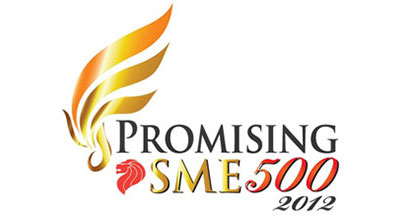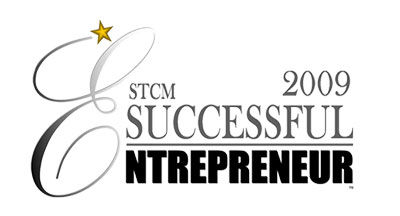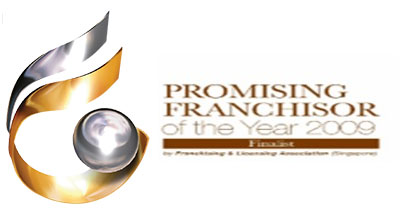Fret no more with Master Trainer Cheng’s simple yet practical tips
Being in the education industry in Singapore, many parents come to me asking: “Can you help my child focus in class?”
As someone who appreciates numbers and works with numbers on a day-to-day basis, I welcome the changes to the syllabus and any other subjects. The changes are designed to help develop our children’s cognitive and logic skills from a young age, which in turn will create future generations of greater minds.
But on the ground, I have students who share with me how they are struggling with the changes. I also have parents who share with me how stressful it is to help their children with homework nowadays.
At the end of the day, our children just want to be able to do well in school. Parents just want to be able to support their children to get what they want. I am sure both parties would like the studying processes to be as enjoyable as possible.
But the idea of education being enjoyable and valuable seems far-fetched a concept at this point in time for many. Which is really sad, as I see so many ways in which we as educators and parents can support our children.
Here’s 3 tips how you can support your child without overloading or stressing your child:
TIP #1: PRACTICE MENTAL ARITHMETIC CALCULATIONS
Students in mainstream education nowadays no longer have a lot of quality “practice time” in the basics such as addition and subtraction during school hours. So for example when a child can solve a word problem sum, if a child’s basics foundation in addition and subtraction is weak, the child will not get the full marks for the question. Losing marks this way adds up to much losses in an exam.
Young children may become easily distracted with calculations such as adding or subtracting. During a mathematics examination, filled with word problems to solve within a time limit that flies by in a blink of an eye, a student can face difficulties attempting to calculate any arithmetic sums without the use of a calculator. This indicates a loss time for solving other problems.
Mental arithmetic skills that involves the 4 basic math operations (+, -, x, ÷) uses the left and right brain processes which helps children to focus, concentrate and empower memory in the very least. This can be trained easily in all children, starting as young as pre-schoolers. Using CMA’s Dual hands, 4-fingers methodology, children can be trained to understand strengthen their numbers sense while doing mental arithmetic calculations through effective imaging and special visualization techniques.
By cultivating these practices on a regular basis, the brain is adapting itself to calculate effectively and efficiently. Over the long run, a habit will be adopted, developing into an essential life skill. This allows fast mental calculation of questions such as 95 + 17 + 60 + 61 + 28 + 27 + 49 + 83 + 40 + 35, possible in a matter of a finger snap.
When a child is confident in performing mental calculations accurately and swiftly, this will significantly sharpen their accuracy and reduce careless calculation mistakes. Every mark in the exam counts! Plus, the time taken to work out the calculations in word problems will reduce – your child will gain extra precious time to focus on understanding the word problems. Most of all, your child will be happier and less stressed because they know they have the right skills to support them while they solve the word problems.
TIP #2: BOOST MEMORY ABILITY
Many people depend on devices to help them remember things. Hence, there has less emphasis on memory training. This is especially so when the amount of content learned in school increases as a student advances from primary 1 to 6.
Our brain is an amazing organ. It is capable of storing, processing and recalling huge amounts of data within a short span of time.
For our children to do well in school, there is a certain amount of memory capability needed. The best part is that our brains can be easily trained to store, process and recall details. I find that adopting CMA’s Dual hands 4-fingers mental arithmetic methodology trains brain imaging and numeric association – the brain’s ability to store a large amount of with accuracy and speed.
Enabling our children to be able to recall the right detail at the right time is a very valuable skill to have not just for maths but for all subjects, especially fact-based subjects such as science.
TIP #3: ENCOURAGE FOCUS & CONCENTRATION
The challenge of growing up in the Information Age is that children today are overloaded with too much content. There is data coming from all kinds of sources. In an exam, students are expected to be able to handle more than 50 questions within a very short period of time. As parents, supporting your child’s ability and perseverance to stay focus on completing a task within the shortest amount of time will enable your child to perform better and create positive results.
Through my years of working with people and mental arithmetic exercises, I see on a daily basis how mental arithmetic is a great way to increase a person’s discipline in the aspects of willpower, focus and concentration.
As the numbers and mental arithmetic exercise increases in level, i.e. Grade 13 – Dan Level in CMA context, a child is training up his concentration ability to handle more difficult questions in order to derive the answer. In the process, a child’s brain is stimulated holistically.
It is common for my students, for those that may appear to be “hyper” and restless, to be able to settle down and focus for extended periods of time willingly. A happy and willing student who is able to start and complete each question quickly and accurately, is half the battle won, in achieving good results in school.
Learn more about CMA mental arithmetic training here.
Published on 6th July 2017
Awards













